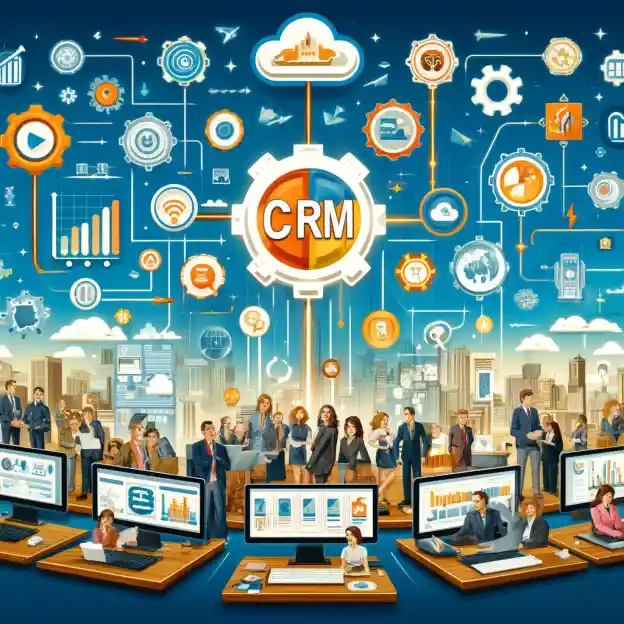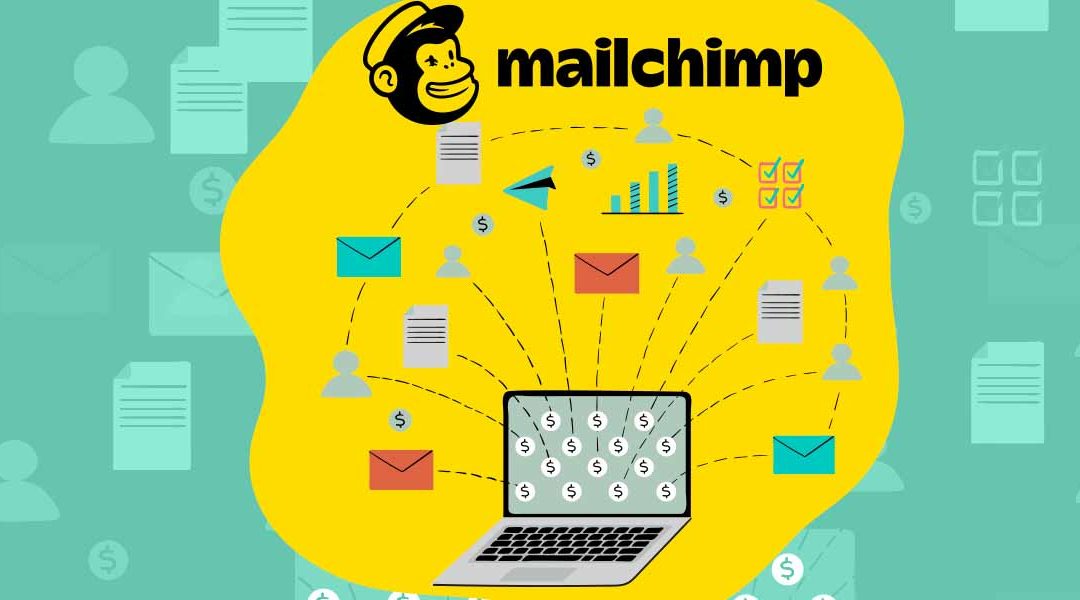A Guide to Automation Software
Table of Content
In the digital age, repetitive tasks can be a major bottleneck to productivity. Automation software emerges as the ultimate time-saving hero, streamlining workflows and freeing you to focus on what truly matters. This comprehensive guide dives deep into the world of automation software, exploring different types, key features, and the specific benefits they offer across various industries. Whether you’re a business owner, entrepreneur, or simply seeking to optimize your workflow, this guide will equip you to identify the perfect automation solution to supercharge your productivity and propel you forward.
What is Automation Software?
Imagine a world where tedious tasks handle themselves, freeing you to tackle more strategic work. That’s the magic of automation software! These powerful tools act as your digital assistants, automating repetitive processes across various applications and tasks. In this guide, we’ll break down the concept of automation software, exploring its core functionalities, the benefits it offers, and how it can revolutionize the way you work.
Revolutionizing Task Management with Automation Software
Automation software is revolutionizing workflows by transforming repetitive tasks into automated actions. This technology often falls under the umbrella of intelligent automation (IA), which combines the power of robotic process automation (RPA) with machine learning (ML) and artificial intelligence (AI).
Let’s break down these key terms:
- Intelligent Automation (IA): IA combines AI with RPA and other cognitive technologies to automate a wider range of processes, including complex workflows.
- Robotic Process Automation (RPA): This technology utilizes software robots to mimic human actions for tasks like data entry, freeing up employee time. A subset of RPA is Desktop Automation (RDA), which focuses specifically on automating tasks on individual desktops.
- Machine Learning (ML): A subfield of AI, ML allows systems to learn and improve their performance through data analysis.
- Artificial Intelligence (AI): This refers to the ability of computers to exhibit intelligent behavior.
Why Automation Software is Essential in 2024?
Workflow automation software powered by solutions like Robylon AI can be your game-changer. Imagine digital workers – intelligent software robots trained with automation rules – handling those repetitive tasks. These digital workers offer unbeatable benefits:
- Accuracy: Eliminate human error with precise data entry and task execution.
- Speed: Boost efficiency with 24/7 operation, freeing up your team’s valuable time.
- Reduced Manual Intervention: Automate workflows and empower your employees to focus on high-value strategic work.
Streamline your human and digital workforce for seamless collaboration. Workflow automation software is a stepping stone to true digital transformation. By building a reliable operating model, you can continuously improve workflows, boost productivity, and unlock new levels of revenue generation.
Types of Software used to automate a process
Automation software goes beyond simply accelerating tasks. It represents a holistic organizational shift – a digital transformation that streamlines operations and unlocks new capabilities.
Popular Automation Software Options:
- Robotic Process Automation (RPA): Software like Robylon AI automates repetitive tasks using software robots that mimic human actions within existing systems.
Example: UiPath is a well-known RPA tool that helps businesses automate repetitive tasks quickly and efficiently. - Intelligent Automation (IA): This combines RPA, Artificial Intelligence (AI), and Machine Learning (ML) to automate entire workflows for maximum efficiency.
Example: Automation Anywhere offers cloud-native IA solutions that integrate AI capabilities to manage and automate complex business processes. - Business Process Management (BPM): BPM software allows for process analysis, optimization, and monitoring. It acts as a central hub, connecting human and digital workers within automated processes.
Example: Appian provides a software platform that allows organizations to design, execute, manage, and optimize their processes. - Optical Character Recognition (OCR): OCR software extracts data from physical documents like invoices or handwritten notes, converting them into usable digital formats.
Example: ABBYY FineReader is an advanced OCR solution that provides precise conversion of paper documents into editable and searchable digital files. - Natural Language Processing (NLP): NLP enables computers to understand and respond to human language, allowing for more natural interactions with automation tools.
Example: IBM Watson offers robust NLP capabilities that enable businesses to analyze text and extract insights from natural language text.
Which Industries Are Embracing Automation?
1. Finance
The financial services industry is undergoing a transformative shift, driven by the power of automation. Repetitive tasks that once consumed countless hours are being streamlined and optimized thanks to Robotic Process Automation (RPA), Artificial Intelligence (AI), and Machine Learning (ML).
This not only improves efficiency and accuracy but also unlocks new opportunities for financial institutions to better serve their customers.

Key Automation Use Cases in Finance
- Loan Processing: Automating loan applications streamlines the process, reduces approval times, and improves the customer experience.
- Regulatory Compliance: Automating compliance tasks ensures adherence to complex regulations, saving time and resources.
- Customer Onboarding: AI-powered chatbots can efficiently gather customer information and verify identities during account opening.
- Client Reporting & Analytics: Automated reporting tools generate customized reports with valuable financial insights, empowering clients to make informed decisions.
- Personalized Financial Services: AI can analyze customer data to personalize investment recommendations and provide tailored financial advice.
Automation is not a replacement for human expertise in finance, but rather a powerful tool for augmentation. By embracing automation, financial institutions can create a more efficient, accurate, and customer-centric future, ultimately unlocking greater value for all stakeholders.
2. Marketing & Sales
In today’s data-driven marketing and sales landscape, automation software is no longer a luxury – it’s a necessity. By streamlining repetitive tasks and leveraging intelligent tools, businesses can optimize campaigns, personalize outreach, and ultimately drive superior results.

Key Automation Use Cases in Marketing & Sales
- Lead Generation & Nurturing: Automate lead capture forms, email marketing sequences, and personalized content delivery based on user behavior. Tools like marketing automation platforms (MAPs) can nurture leads with targeted messaging, keeping them engaged throughout the buyer’s journey.
- Campaign Management & Optimization: Automate tasks like social media scheduling, email campaign blasts, and A/B testing for subject lines and landing pages. Marketing automation software allows for real-time performance tracking and data analysis, enabling continuous campaign optimization for better conversion rates.
- Sales Pipeline Management & Automation: Utilize Customer Relationship Management (CRM) software with automation features to manage leads, track interactions, and automate tasks like follow-up emails and appointment scheduling. This streamlines the sales process and empowers sales teams to focus on closing deals.
- Personalized Customer Experiences: Leverage marketing automation and CRM data to personalize website content, email offers, and sales pitches based on individual customer preferences and purchase history. This fosters stronger customer relationships and increases the likelihood of conversions.
- Data-Driven Decision-Making: Automation tools provide valuable insights into marketing campaign performance, sales pipeline health, and customer behavior. This data empowers marketers and salespeople to make informed decisions and optimize strategies for maximum ROI.
By embracing marketing and sales automation software, businesses can unlock a new level of efficiency, and personalized customer experiences, and ultimately achieve significant growth.
3. Customer Relationship Management (CRM)
CRM systems often get bogged down by repetitive tasks like data entry, lead nurturing emails, and scheduling follow-ups. Automation software swoops in as the hero, tackling these time-consuming chores with remarkable efficiency.

Key Automation Use Cases in Customer Relationship Management (CRM)
- Effortlessly capture and update customer data: Say goodbye to manual data entry! Automation can integrate with various sources, automatically populating customer profiles with website visits, email interactions, and social media activity. This ensures your CRM data remains accurate and up-to-date.
- Intelligent Lead Nurturing: Automation personalizes the lead nurturing process. By sending targeted email campaigns based on customer behavior and interests, you can nurture leads seamlessly, driving them further down the sales funnel.
- Automated Appointment Scheduling: Free yourself and your team from scheduling gymnastics. Automation tools can integrate with calendars, allowing customers to self-schedule appointments based on their availability.
- Automated Birthday & Anniversary Greetings: A simple yet powerful touch! Schedule automated emails or social media messages to celebrate customer birthdays and anniversaries, fostering stronger relationships.
- Trigger-Based Communication: Set up automated triggers based on customer behavior. For instance, an email offering product recommendations could be sent after a customer abandons their cart.
- Sentiment Analysis & Personalized Support: Integrate AI-powered sentiment analysis to understand customer sentiment through emails or social media interactions. This allows for proactive outreach and personalized support when needed.
By embracing automation, businesses can unlock the full potential of their CRM systems. From streamlined workflows to personalized customer experiences, automation empowers businesses to build stronger relationships, drive sales, and achieve sustainable growth in the ever-evolving customer experience landscape.
Other Industries Leveraging Automation
- Law: Automation tackles repetitive legal tasks like document review, contract generation, and due diligence.
- Healthcare: Streamlined appointment scheduling, automated prescription refills, and AI-powered chatbots for basic health inquiries.
- Insurance: Automated policy renewals, claims processing, and fraud detection for faster and more efficient service.
- Human Resources: Automate onboarding processes, schedule interviews, and analyze employee data to identify training needs.
- Agriculture: Automated irrigation systems, data-driven insights for crop yield optimization, and robotic equipment for harvesting and planting.
- Analytics: Automates data collection, cleaning, and transformation, freeing analysts to focus on deeper insights and data visualization.
Choosing the Right Automation Software for Your Needs
Selecting the right automation software isn’t a one-size-fits-all solution.
Here are some key questions to ask yourself to ensure you choose the perfect tool for your organization’s needs:
1. Compatibility Check: Does your organization rely on legacy systems?
Ensure the automation software integrates seamlessly with your existing infrastructure to avoid compatibility headaches.
2. Budgeting for Efficiency: Define your automation budget upfront.
This will help narrow down your options and ensure you choose a solution that aligns with your financial resources. Remember, the most expensive software isn’t always the best fit.
3. Identifying Automation Needs: Before diving in, pinpoint the specific tasks and workflows that automation can optimize within your business. Focus on areas that are repetitive, time-consuming, or prone to human error.
Targeting these pain points will lead to the greatest efficiency gains.
4. Connecting the Ecosystem: Does your business utilize third-party applications or tools?
Choose automation software that plays well with others. Seamless integration ensures data flows smoothly and eliminates the need for manual data transfer between systems.
By considering these key factors during your selection process, you’ll be well-equipped to choose an automation software solution that empowers your team, streamlines workflows, and propels your business forward.
Essential Benefits of Automation Software
Automation software offers a compelling value proposition for businesses of all sizes. Beyond the well-known benefit of increased efficiency, automation unlocks a range of advantages that empower businesses to thrive in today’s competitive landscape.

Here’s a closer look at some key benefits:
1. Ensuring Compliance
Keeping pace with ever-evolving regulations can be a constant challenge. Thankfully, automation software steps in as a reliable ally. Digital workers can automate processes to adhere to industry standards consistently and accurately. Their actions are documented for complete transparency and auditability, minimizing the risk of human error and non-compliance.
2. Driving Cost Savings and Quality
Automation goes beyond simple efficiency gains. By eliminating human error in automated tasks, digital workers ensure higher-quality output. This translates to fewer hours spent fixing mistakes and rework, leading to significant cost savings. Furthermore, your human workforce can be re-skilled and unskilled to focus on higher-value tasks, maximizing your talent pool.
3. Scalability and Boosted Productivity
While initial automation implementation may incur costs, intelligent automation solutions excel in scalability. These solutions can be easily adapted to your organization’s evolving needs, growing alongside your business. This flexibility ensures maximum return on investment (ROI) and empowers your digital workforce to continuously accelerate productivity across various departments.
4. Enhanced Customer Satisfaction
Automation isn’t just about internal benefits – it plays a crucial role in customer experience as well. Digital workers can handle routine customer service tasks 24/7 with exceptional accuracy, leading to faster resolution times and improved customer satisfaction. Additionally, integrating Natural Language Processing (NLP) technologies like chatbots empowers customers to find answers to their questions quickly and efficiently.
By embracing automation software and its multifaceted benefits, businesses can achieve streamlined workflows, improved quality, enhanced customer satisfaction, and a more engaged workforce – all contributing to long-term success and a competitive edge.






